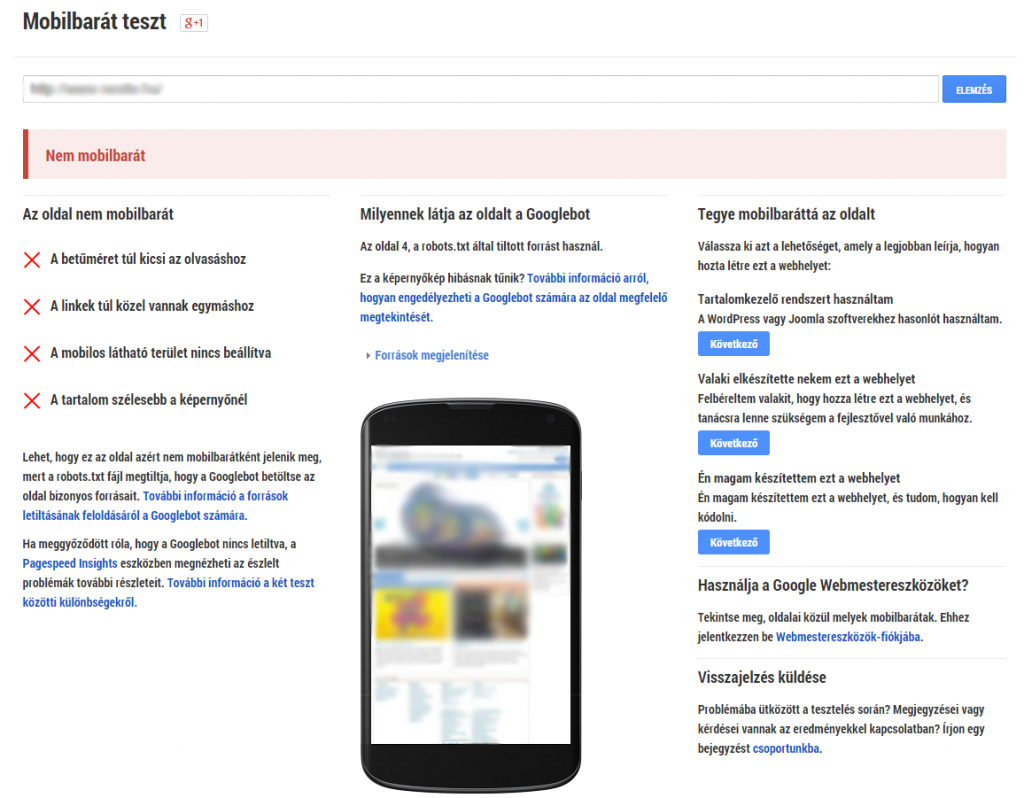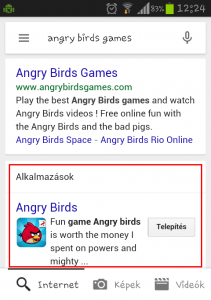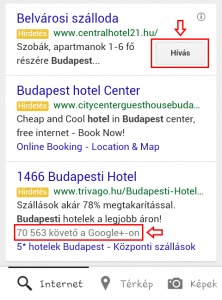9 things you need to know about the Google Mobile Friendly Update | Weboptim
As of 21 April, Google will also rank your website according to whether it is mobile-friendly. This update mainly affects mobile organic searches.
1. What changed on 21 April?
From new mobile indexingWith this update, Google aims to rank both the content of the app and the links in the app.
With the announcement of the mobile-friendly ranking feature, Google did not focus more on mobile page speed, only minimizing redirects and preventing mobile errors. Indeed, speed is not as decisive a factor in content ranking, as Google is able to get more and more information from feeds.
A Mobile-friendly test has been available to everyone for some time now in the Webmaster Tools reports.
2. If my website is not mobile-friendly, will it affect my rankings on desktop?
The answer is simple: no. The new algorithm has/will only affect mobile search results, not desktop results. Of course, it is recommended that the website is also made available on mobile to improve the user experience and reduce bounce rates.
3. How will mobile ranking be affected?
It is a big change compared to the introduction of the Panda or Penguin algorithms. Not sure whether all mobile devices will be affected or not. It may have a bigger impact on Android devices, but it may have the same impact on Android and iOS.
4. What about pages that redirect to a mobile subdomain? Can such a site be considered mobile friendly?
It seems the mobile subdomain can be seen as a sign of mobile-friendly functionality, but after an algorithm update, there will be no data on how many apparent mobility flags a page has (e.g. responsive design, dynamically mobile website).
Some say this method has the least potential for error and is the easiest way to crawl and index subpages, but Google seems more willing to accept other mobile architectures than this one.
5. How do I know if my site meets the Google mobile friendly criteria?
A Google's mobile-friendly tool we can check whether or not it matches URL by URL.

Another way to do this check for the main pages: write the following in front of the domain name "site:" section in the search engine or in the top bar of your browser.
With this term, Google shows you all the indexed pages of the website and evaluates which ones meet the mobile-friendly criteria and which ones don't, without sending them to the tool for verification (it ranks the ones that meet them better)

Google has clarified that mobile-friendly test results are two-component, meaning that a site is either mobile-friendly or not. There is no such thing as being half mobile-friendly and half not. The assessment is immediate, there is no proof period. But it can change if the robots perceive the site as mobile-friendly, but this requires regular robot monitoring.
The results on the device may not always match what you see on your phone screen. Sometimes 2 web pages with the same template may appear differently, even if the template settings have not been changed, only the text. The real-time latency between device and robots could be the cause: the tool has checked the page, but if the robot has not yet visited the page to assess whether it is mobile-friendly, it has not yet been flagged in the search results.
With these in mind, if you we will update one page, and then we test, use the tool to see if the update has been successful before re-mapping it happens. So, if the tool shows that your site is mobile-friendly, in order to get the pages indexed as quickly as possible, upload a page map to Webmaster Tools to force the bots to visit the site again.
6. How does the mobile app affect mobile rankings?
Two things to consider.
Firstly, if mobile search results are highly correlated with mobile app listings (Google Play, iOS App Store download page), then the app is more visible in mobile search results. This is because Google sees apps as a new kind of universal search result. App Pack, which shows a group of recommended applications, separated by a box from the other organic search results. It is usually shown below the first or second result. It recommends based on the keyword in the app title, so apps whose title is keyword-optimised will be successful.

Second, the high quality application an positive ranking factor during mobile searches. In other words, linking between a website and an app can improve the mobile search ranking of a website by providing a direct link to the app. It looks like an ordinary link, but with a click you can decide whether you want to open the page on the web or in the app. There is no exact information on what determines the quality of an app, but most likely it is ratings, reviews, +1 values.

7. If you want an app, what should you choose? Android, iOS or both? What if you have limited funds?
If you have the right background to maintain and develop a mobile app and a mobile website, it makes sense to maintain both, especially if the app adds value for customers and is not just a duplicate website.
If we have a limited budget, you have to make a choice, but you should make sure that it is primarily a business decision, not an SEO choice. (Your business may work well on a mobile website or it may work better on a mobile app that only has a promotional mobile web landing page that sends users to the app store.) In general, a mobile website is appropriate for most businesses.
From Applications are fundamentally riskier, require more investment and have to comply with app store policies and approval processes over which we have no control.
If you choose to use the application, the Google Analytics data to help us decide which operating system is most popular with our visitors. If we don't have this data, or if we have a limited mobile audience, we should choose the platform that better fits our budget strategy. Surveys show that iOS users spend more money, but overall Android users are much more numerous.
8. How does mobile traffic affect users' searches? Is there a way to find out if my top keywords are coming from desktop or mobile searches?
In mobile searches, search terms play a much more important role, and Google wants to give the best result for the user's intent. On mobile "sponsored" results - mainly on Android devices. Top search results are sponsored for most flights, hotels, music or TV shows, ranking above organic search results.
Even more often, the PPC results get better visibility, with click-to-call, ratings, app icons and other links.

Which keywords are mobile and which are desktop oriented is a difficult question. A Webmaster toolsyou can get some basic information by filtering keywords, or you can do something similar in Analytics.
9. What is Google aiming for with these mobile-friendly changes?
Obviously there are a number of different objectives at play in this change, but the main one is probably that Google wants to deliver the best possible mobile experience, and give them exactly what they want.
Source: moz.com